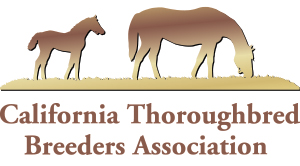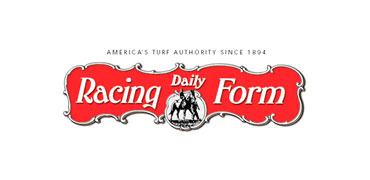By Jay Hovdey, DRF.com
DEL MAR, Calif. (Nov. 21, 2014) — In “To Catch a Thief,” the 1955 Alfred Hitchcock thriller, reformed cat burglar John Robie declares to the rich girl played by Grace Kelly, “You know I have about the same interest in jewelry as I have in politics, horse racing, modern poetry, and women who need weird excitement – none.”
She doesn’t believe him, of course, but not because Robie is played by Cary Grant, and everyone knew Cary Grant liked everything about horse racing. She doesn’t believe him because Robie’s got “guilty” written all over him right up until the twist at the end, when the real thief is revealed to be –
But you know all that. Cary Grant movies play all the time. On the American Film Institute’s list of the Greatest Screen Legends, men’s division, Cary Grant is ranked No. 2, behind Humphrey Bogart. The list is 15 years old, but chances are Grant’s spot is still secure.
That is because Cary Grant was that rare movie star who could bend his cool, glib persona to sly character parts. There was always the romantic Cary Grant of “The Bishop’s Wife” and “An Affair to Remember.” But then there was the scary Cary Grant of “Suspicion,” the edgy Cary Grant of “People Will Talk,” the wacky Cary Grant of “Monkey Business” and “Bringing Up Baby,” and the scruffy, unshaven Cary Grant of “Father Goose.”
The only time the races served as a significant backdrop in a Cary Grant movie was in a scene from “Notorious,” set in Rio de Janiero. Viewers are forgiven if they paid more attention to Ingrid Bergman. Toast of New York, the most exciting international horse of the 2014 season, was named for a 1937 Cary Grant movie.
:: DRF Live: Get real-time updates and insights from DRF reporters and handicappers on Sunday
The idea that celebrities lend horse racing a touch of class is neither outdated nor wrong. When Cary Grant showed up at the races it was the same as Jack Nicholson glomming onto the Lakers, or Bill Murray stealing the show at the Pebble Beach pro-am. The culture sits around and waits to see what celebrities do, and where they spend their time. Depending on the era, horse racing always has been more or less one of those places.
It is tempting to deploy the “larger than life” cliché when referring to an icon like Cary Grant. But in my experience, he was just about the right size when encountered at a Hollywood Park party, circa 1980, and personable to a fault. He was a member of the board of directors of the racetrack at the time, which was a natural outgrowth of his lifelong love of the sport as well as his friendship with savvy track boss Marjorie Everett. She knew that having a star like Cary Grant on hand gave the place a spritz of the glamour that fooled the press into thinking the racetrack was the place to be, and it worked.
Grant died in 1986, leaving behind the undeniable classics “North by Northwest” and “The Philadelphia Story,” along with such irresistible entertainments as “Topper,” “His Girl Friday,” and “Charade.” There were clunkers, too – an actor can’t make 77 good movies – but bombs like “Night and Day,” “The Grass Is Greener,” and “Operation Petticoat” are at least worth watching to see what Cary Grant does to entertain the troops as the ship goes down.
The biggest bust with Grant’s name attached came courtesy of Everett, and the man wasn’t even around to turn down the part. In 1984, she unveiled the $30 million Pavilion of the Stars, a grotesque box of a building that more closely resembled a drab parking structure than a modern extension of the traditional Hollywood grandstand. Hollywood Park later sued the designers, but not before Everett thought it was a good idea to honor her late friend by renaming it the Cary Grant Pavilion. Since few patrons ever bothered to inhabit the place it inevitably became known as Grant’s Tomb. Later, it was converted to the Hollywood Park Casino.
It matters what names are given to races and horses because that is what the public hears. Give a race or a horse a dumb name, or an obscure name, and the game comes off more tone deaf and out of touch than it needs to be. Everett could have simply named a nice, classy horse race after Cary Grant and reaped the benefits. But no, that fitting gesture was left to Del Mar – 28 years after Grant’s death – as part of the current autumn dates formerly run at Hollywood.
Sunday’s first running of the Cary Grant Stakes will hardly move the national dial. It is a seven-furlong race for California-breds, run at Hollywood Park as the On Trust Stakes for 30 years, and won by more than a few decent animals, including Hollywood Gold Cup winner Super Diamond, Godolphin Mile winner Grey Memo, and Golden Shaheen winners Big Jag and Proud Tower Too.
Rousing Sermon, the winner of the 2013 On Trust, is back to see if he can take the first Cary Grant. He will be facing Big Macher, winner of Del Mar’s Bing Crosby last summer, as well as the red-hot Red Outlaw, who after six starts does not know what it’s like to lose. The purse is a modest $100,000, but there is a bonus, because Cary Grant is definitely the kind of name you want on a trophy.


